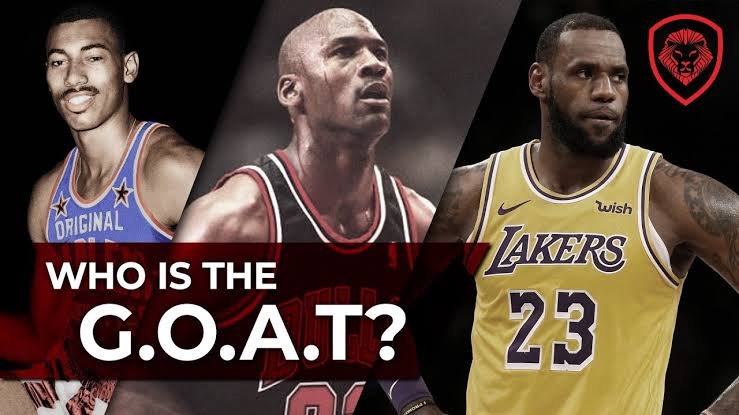Why isn’t Wilt Chamberlain regarded as the greatest player of all time, given that his statistics surpass those of everyone except Michael Jordan and LeBron James?
Wilt Chamberlain is often recognized as one of the most dominant players in the history of basketball. He redefined the game during his era, and his statistical achievements are nothing short of staggering. Averaging an incredible 30.1 points and 22.9 rebounds per game throughout his career, Chamberlain holds numerous records, including the legendary 100-point game in a single match. However, despite these monumental achievements, he is frequently regarded as not the greatest player of all time, a title often claimed by Michael Jordan or, more recently, LeBron James. The reasons are multifaceted and reflect the evolution of the game, societal factors, and subjective interpretations of greatness.
### Dominance vs. Era and Competition
One of the primary factors in evaluating Chamberlain’s legacy is the context of the competition he faced. Chamberlain played during the 1960s, a time when the league consisted of far fewer teams and athletes compared to the modern NBA. While his dominance in terms of raw statistical output is unparalleled, critics often point out that the quality of competition was not as high as it is today. The NBA featured a limited number of teams, resulting in a smaller pool of talent, which some argue diminishes the context of his accomplishments.
In contrast, players like Jordan and LeBron have competed in much larger leagues with greater overall talent. The depth of competition in the modern game is viewed as superior. The evolution of training, analytics, and sheer athleticism has led many to argue that modern players face more challenges than Chamberlain did during his time.
### Team Success and Championships
Another key point often raised is Wilt’s team success, particularly his performance in the postseason. While Chamberlain won two NBA championships (1967 and 1972) and was frequently dominant in the regular season, he encountered challenges during the playoffs. For instance, he faced Bill Russell and the Boston Celtics, who defeated him in the 1960s consistently. Many basketball enthusiasts view championships as a significant metric for greatness, and by this standard, both Jordan and LeBron have an advantage. Jordan won six NBA titles with the Chicago Bulls and was the Finals MVP in each of those successful campaigns. LeBron has won four championships while consistently leading teams to the Finals.
Wilt’s inability to consistently translate his regular-season dominance into postseason success has somewhat tarnished his legacy. The impact of team dynamics, coaching, and matchups can’t be ignored, yet many still emphasize the importance of championships in the discussion of greatness.
### Evolution of the Game
The role of position and style of play has evolved dramatically since Wilt’s time. Today’s NBA emphasizes three-point shooting, perimeter play, and versatile skill sets. By contrast, Chamberlain was primarily a post player who dominated near the basket. While his size and strength were unmatched during his time, the game’s evolution means that a player like him would have to adapt significantly to today’s style.
Michael Jordan exemplified the transition toward a more perimeter-oriented game, showcasing a lethal mid-range shot and extraordinary athleticism that translated seamlessly to the evolving landscape. LeBron, a hybrid player capable of playing multiple positions, exemplifies the modern trend of athletic versatility and skill—traits that many believe enhance their claims to the title of greatest player of all time.
### Charisma and Marketability
Off the court, the personal brands and narratives of Jordan and LeBron have significantly contributed to their legacies as the greatest players. Jordan was the face of the NBA during the 1990s, with his iconic “Air Jordan” brand transcending basketball and becoming a global phenomenon. His charisma, competitive fire, and marketability set the standard for athletes as businesses, and they contributed to his legend.
LeBron, with his philanthropic endeavors and social activism, has also crafted a persona that resonates with fans beyond the basketball court. He has leveraged social media to create a modern-day legend, which has allowed him to connect with a global audience in ways that respect his legacy.
Wilts’ reputation and brand, while impactful within the sport at the time, didn’t have the same comprehensive reach. Chamberlain’s off-court persona is sometimes seen as polarizing, and while he was undoubtedly a dominant force, he did not cultivate the mystique that surrounds Jordan or LeBron.
### Subjective Interpretations of Greatness
Greatness in sports is inherently subjective, influenced by personal biases and fanhood. Many fans and analysts often choose their favorite players based on various factors, including era, playing style, or personal connection to a player or team. This subjectivity complicates any definitive declaration of the greatest player of all time.
For every fan who venerates Chamberlain’s statistical dominance, there are equally passionate advocates for Jordan’s competitive spirit, clutch performances, and recognizability. LeBron’s versatility and impact over an extended career have equally passionate defenders. The debate often shifts based on recent performances, generational biases, and evolving viewpoints on what “greatness” in sports truly means.
### Conclusion
Wilt Chamberlain’s place in basketball history is firmly locked as one of the all-time greats. His records and achievements are monumental and arguably some of the most impressive in the annals of sports history. However, the complexities surrounding comparisons between players, particularly when evaluating championships, era, competition, and narrative, make the discussion of the greatest of all time nuanced.
While Wilt’s statistics are staggering, the comparative analyses that encompass context, evolution of the game, team success, and personal branding have contributed to a dynamic wherein he is not universally regarded as the greatest player of all time. As basketball continues to evolve, so too will discussions about its legends—highlighting the importance of context in defining greatness in a sport beloved by millions.




Post Comment